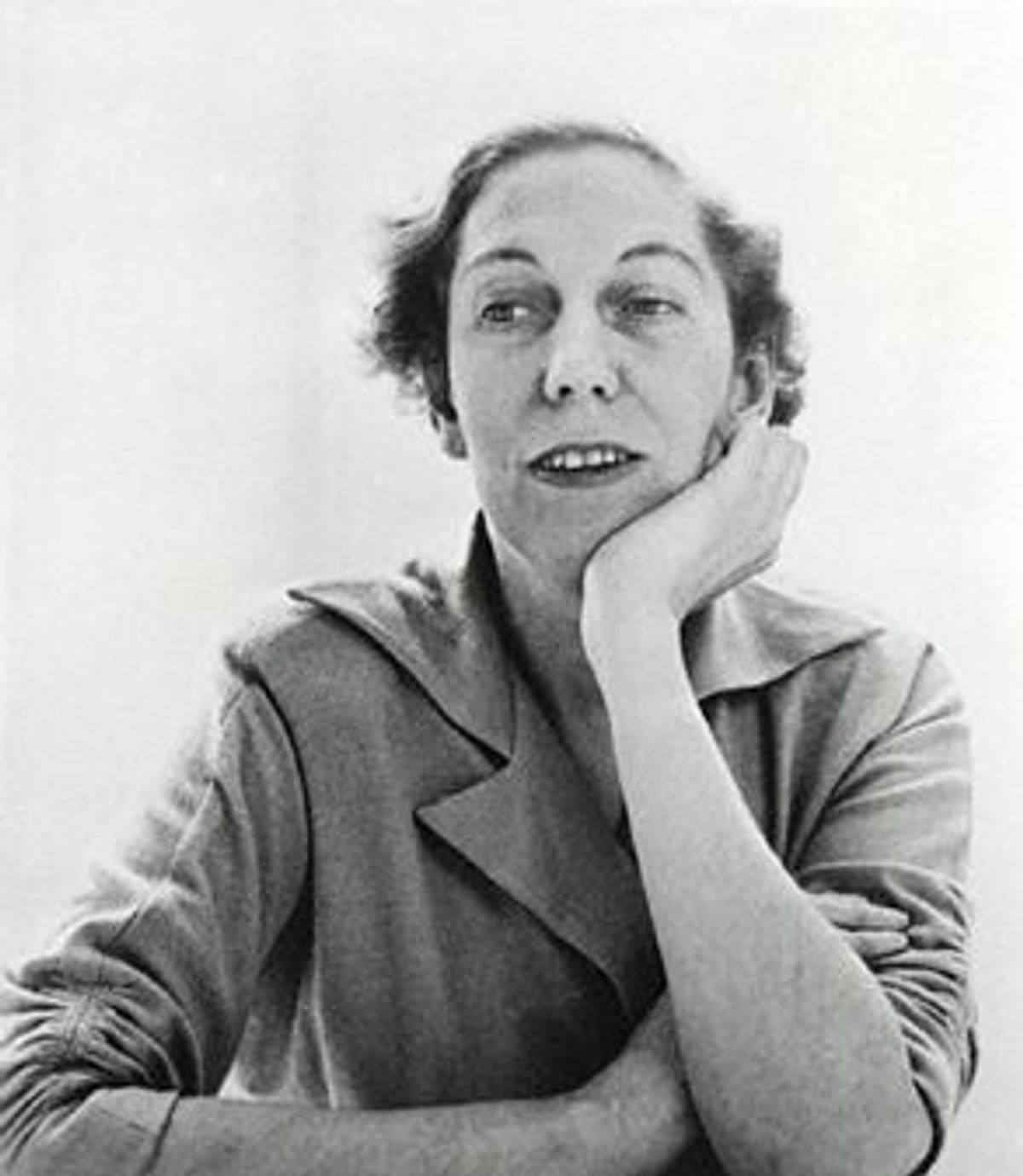She's probably having a glass of sweet tea in heaven right now. She's sitting on a porch, surrounded by the small circle of her peers. Someone asks how it feels to have left Mississippi for the last time. She smiles, and in her soft alto voice says, "Well, maybe now they can quit calling me the greatest living Southern writer."
Eudora Welty had a musical voice, impeccable manners, a shrewd gleam in her eye and a deadly sense of humor. Unlike most proper Southern ladies of her generation, she spent her life trying to uncover the peculiar truth of her time and place by writing fiction.
It was not the usual thing for a nice girl from Mississippi to teach herself to write. She was good at it from the start. When the New Yorker snapped up her early efforts, she was not surprised. "It's only now, when I look back on it, that I'm simply amazed," she said much later. "Because I was very, very lucky. I didn't know enough to be scared."
Of course she was beyond lucky: She had the gift. She knew to save her best stuff for the typewriter. The neighbors on Pinehurst Street in Jackson heard the clacking of that old machine at all hours. Her stories, novels and memoirs won every literary prize except the Nobel, which is sadly beyond her reach at last.
When she died this week at 92, Miss Welty had worn the mantle of "greatest living Southern writer" for nearly 40 years, since the death of William Faulkner. In later life she glided through a thousand events in her honor, a stately queen of American literature -- always gracious, smiling, always on time, shy but grateful for the accolades and eager to meet new people.
I'll never forget a night in Jackson, 1984, one of those literary parties. As always, she is the center of the room, though she stands to one side, near the door. She greets her admirers with a gentle smile, an autograph, a motherly pat on the hand. When the time comes, she walks to the podium, opens a book and begins to read "Petrified Man."
At once, all that great-writer stuff melts away and we're left with the plain fact that Eudora Welty is a very funny writer. The sly, sneaky, dangerous kind of funny. She reads at a brisk pace, to keep the laughter aloft. "'Reach in my purse and git me a cigarette without no powder in it if you kin, Mrs. Fletcher, honey,' said Leota to her ten o'clock shampoo-and-set customer. 'I don't like no perfumed cigarettes.'" With those few words, she summons a whole world of smell, sight, and sound. She establishes (and promptly skewers) her narrator, sets the wheels of the narrative turning, and earns an honest laugh -- briefly, beautifully, without mussing her hair. Later, she flips the laughter over to reveal the sadness underneath.
After her brilliant reading, I'm a nervous young writer wondering what to say, and Miss Welty is patting my hand. An elegant anchorwoman hovers nearby, waiting for her interview. I've been dispatched by my employers to ask if Miss Welty might give us some scrap of writing to publish in our glossy lifestyle magazine. I'm begging for anything -- a letter, a grocery list. She turns me down. "Thank you very much," she says, "but no." The rejection is smooth and sweet, and I remember it exactly -- gentle as a kiss on the cheek.
I tell her we've met before, when I was a high school junior in a big room at the Old Capitol in Jackson, and she awarded me an "honorable mention" in a short story contest. I went home from that ceremony, read her story "A Worn Path," and decided to try to write fiction -- really, seriously. Now, here I am standing with Miss Welty, and my first novel is about to come out. She just keeps patting my hand, as if to console me, or to warn me against getting my hopes up.
Tonight she's wearing a remarkable ankle-length dress covered with tiny pieces of mirrored glass stitched into the fabric. I offer a compliment. "Do you like it?" she says, peering down at all the mirrors. "I want so desperately for people to see something of themselves when they look at me."
A year later, I'm sitting beside her at a literary luncheon in Birmingham. I'm remembering what she said about that mirrored dress. I'd like to tell her that I have seen reflections of my own self in her work. I've learned from reading her stories that fiction can be an excellent way of getting at the truth. I try, but the words get stuck in my throat. She lifts her fork to the blueberry cheesecake. She's busy observing the buzz all around us, but still she takes time to answer my novice-writer questions. Just when everything is going too well, a great glob of blueberries flies off the end of her fork and lands smack on the fly of the new white trousers I have bought for the occasion. I am mortified. A round of dabbing with napkin and water does nothing but widen the damage. Miss Welty reaches for my hand, pat pat. Her smile is sly, full of fun.
"You just tell them Eudora did that to you," she says. "You'll be OK."



Shares